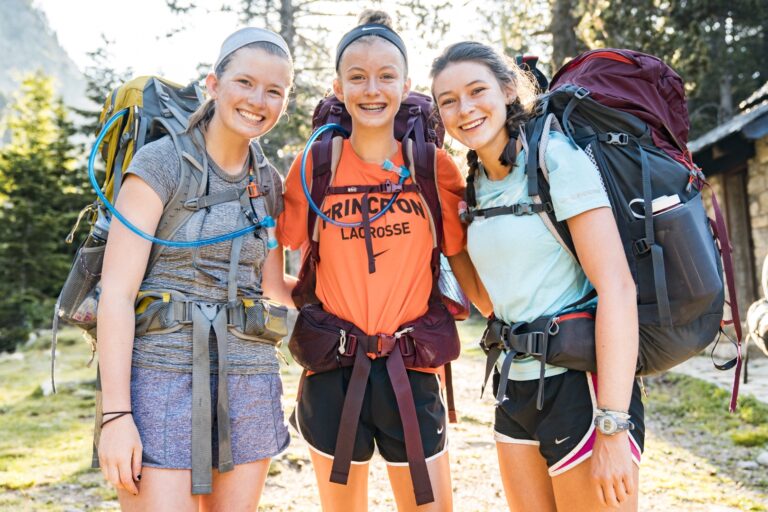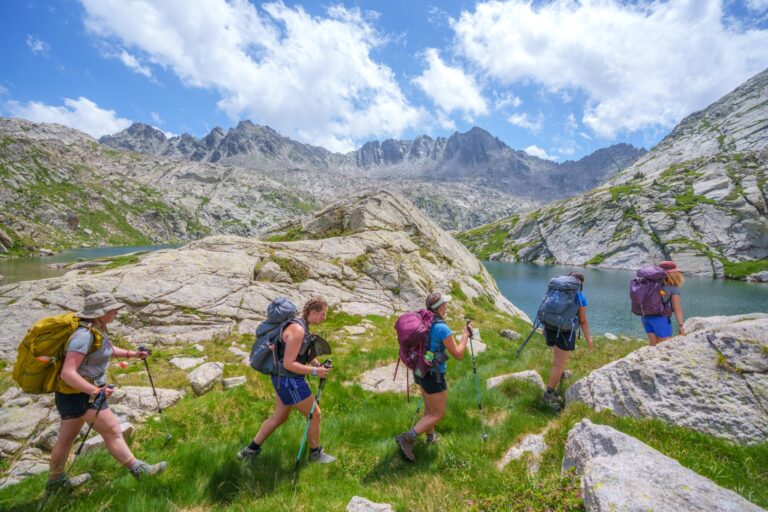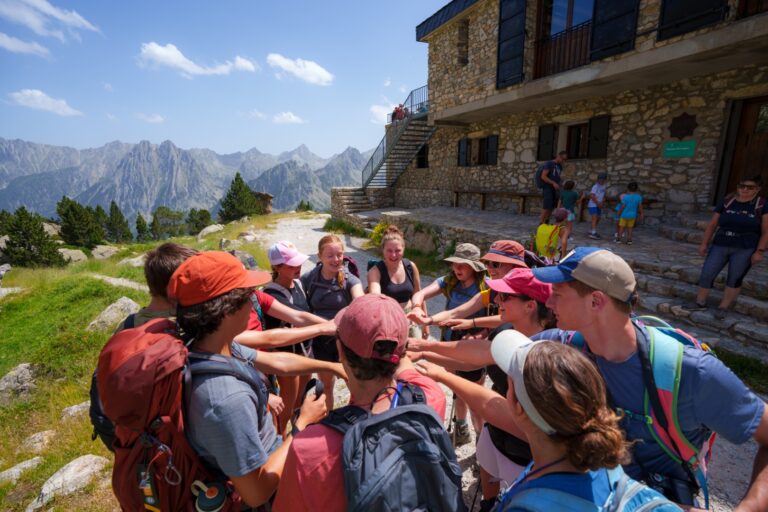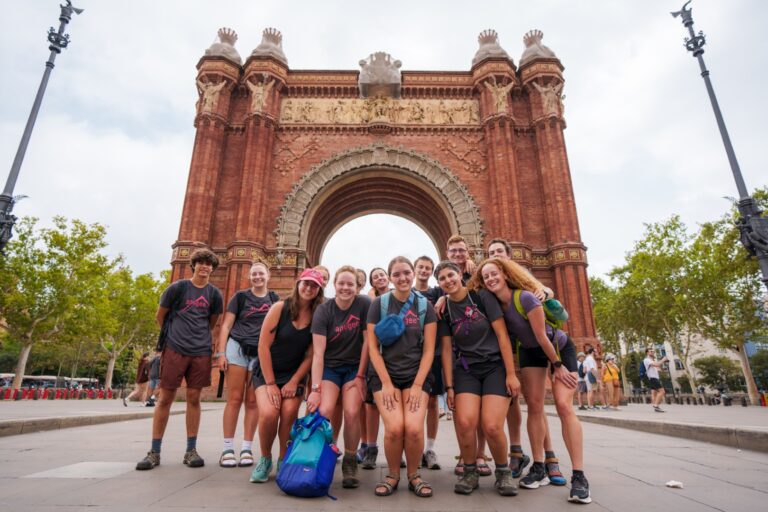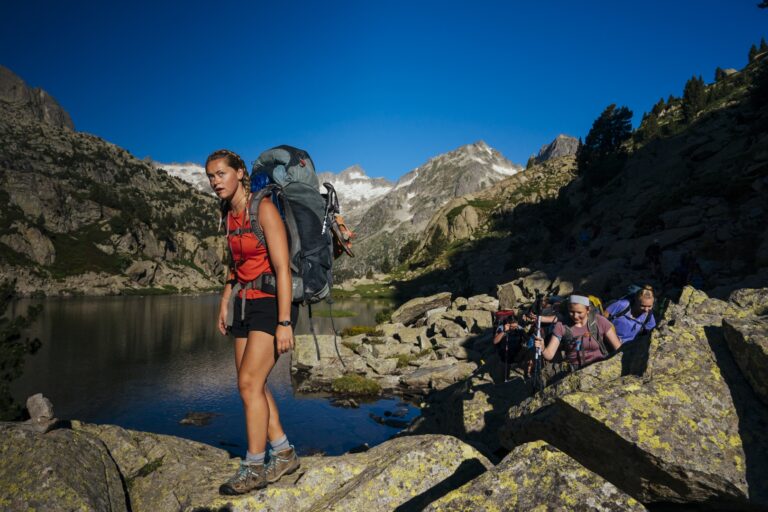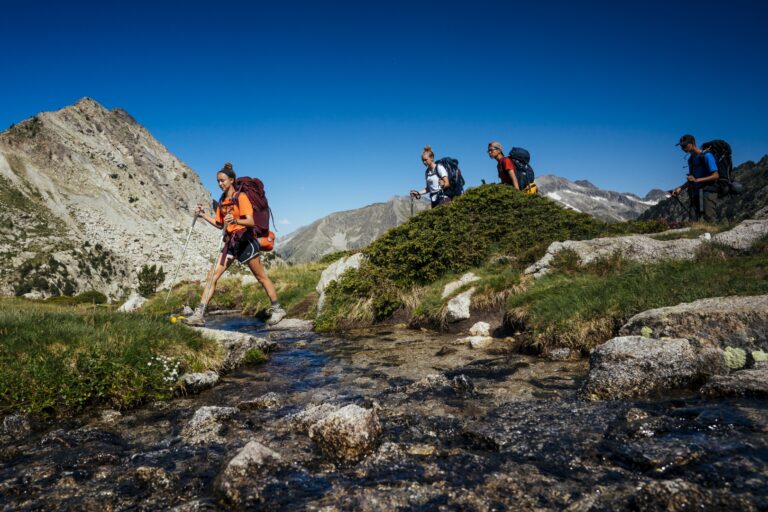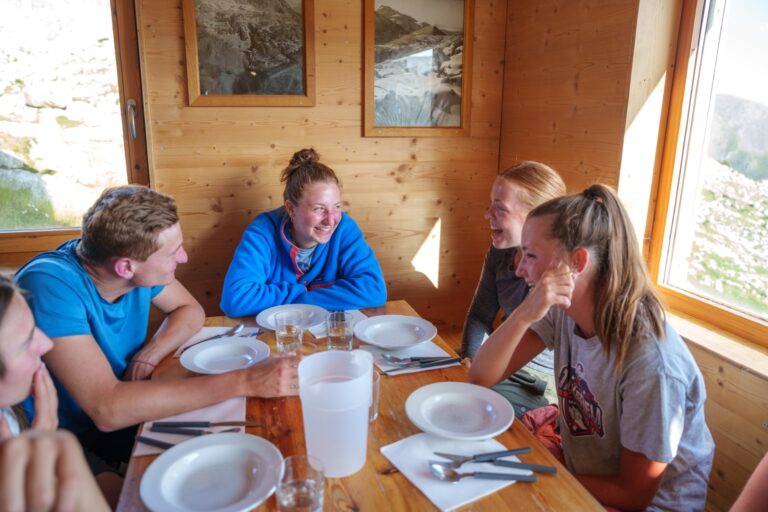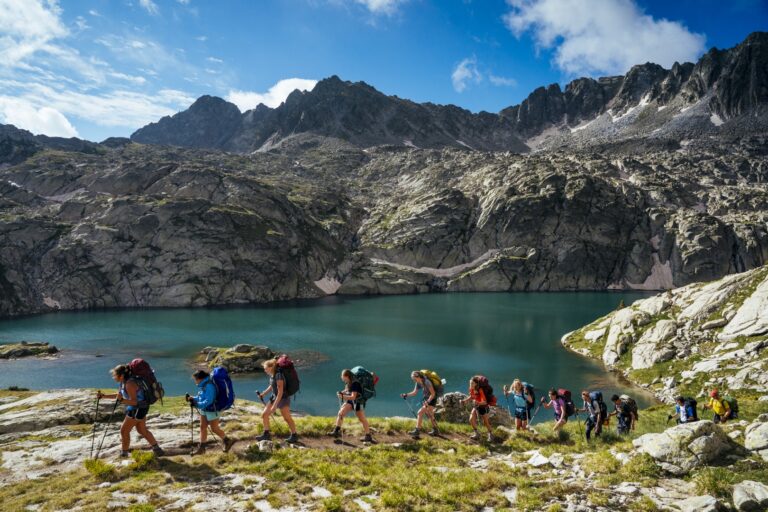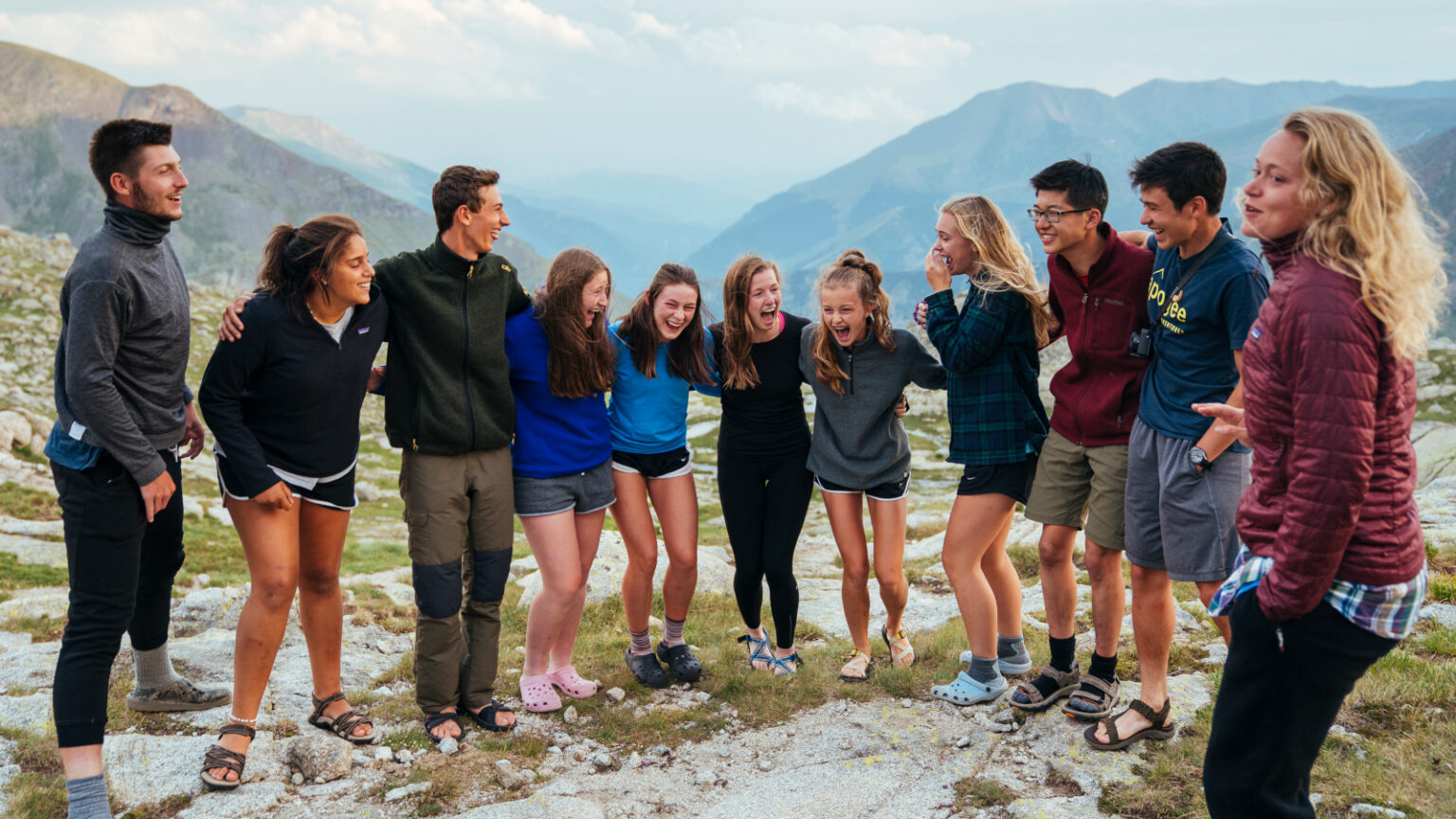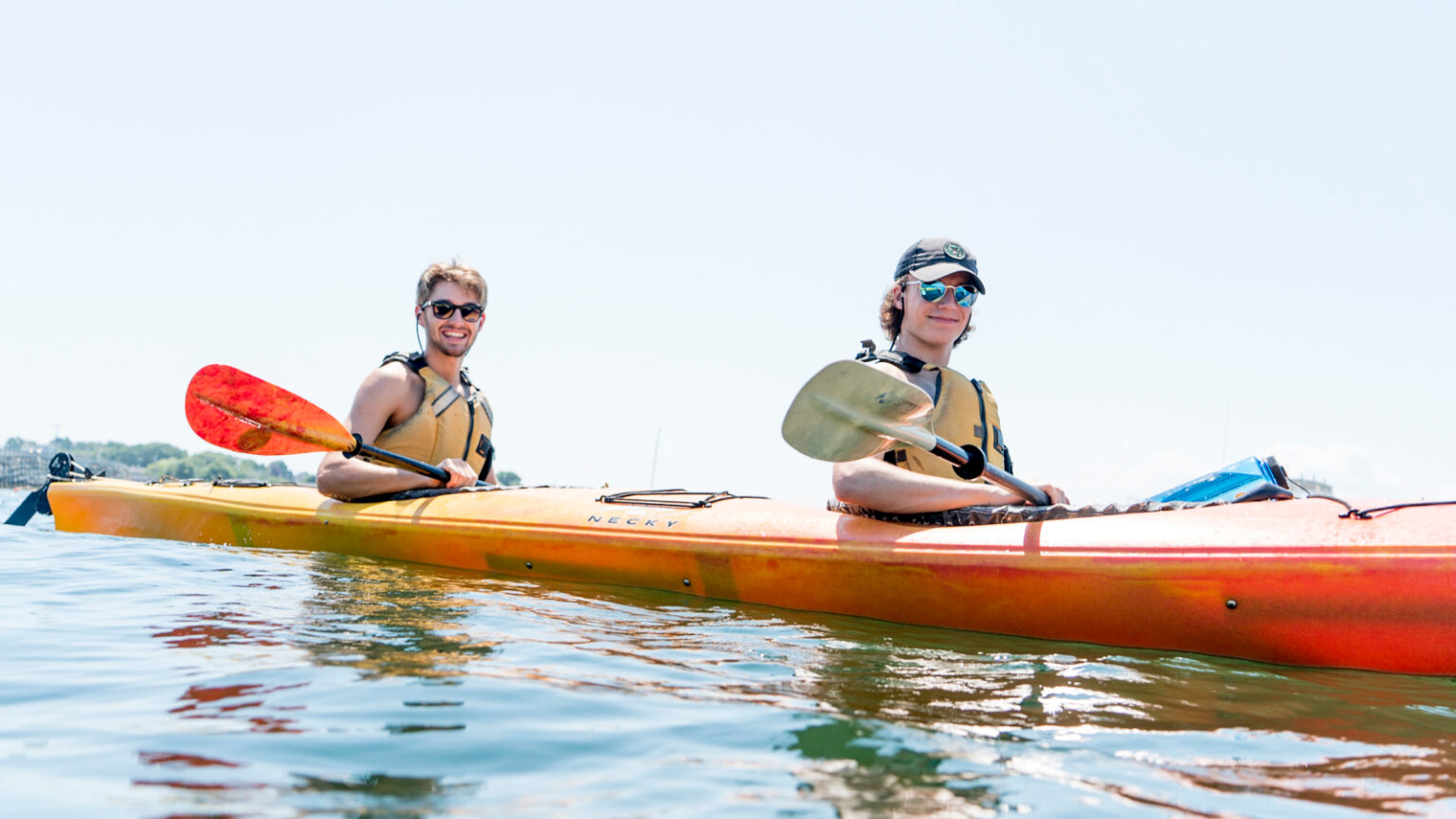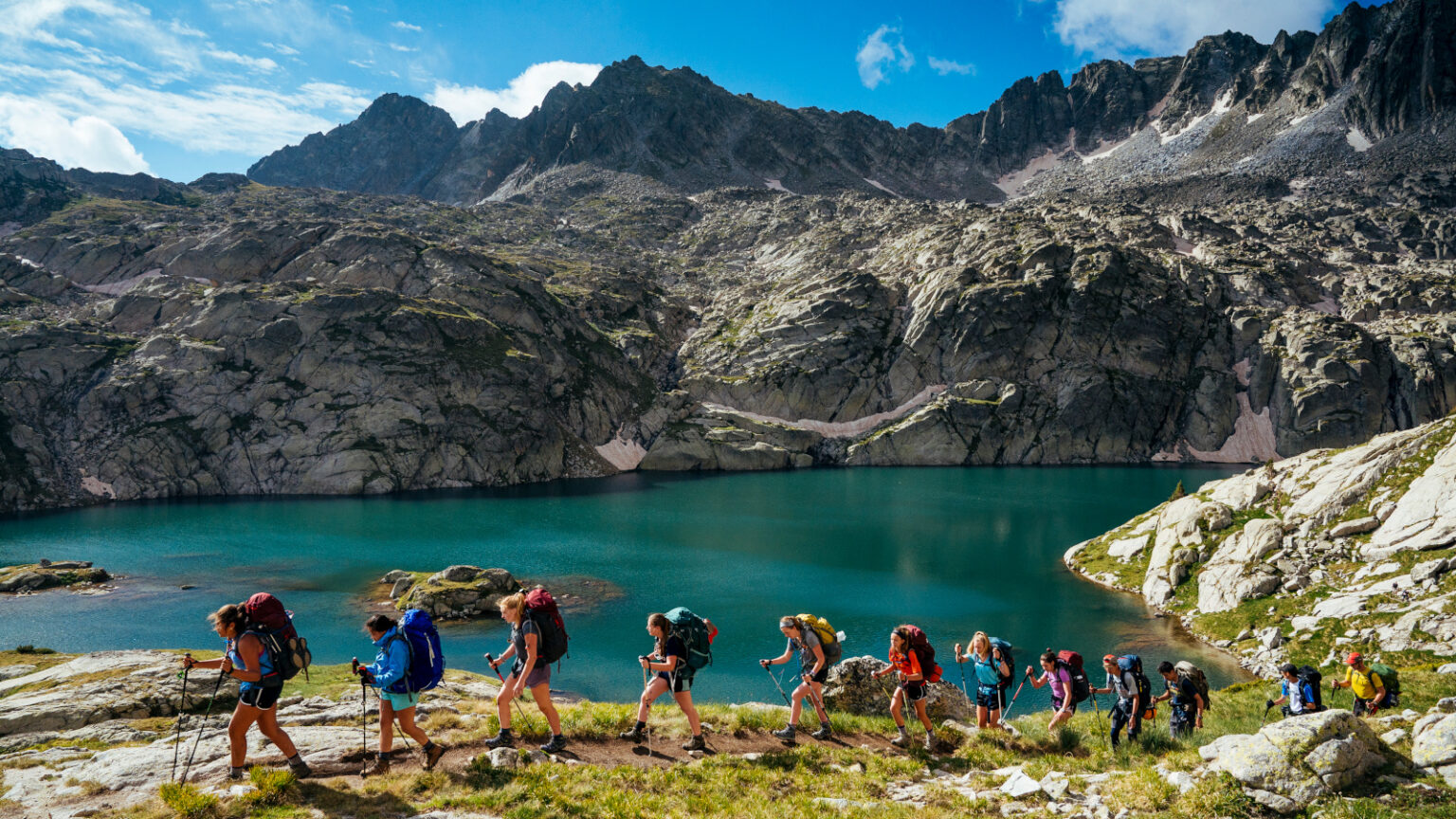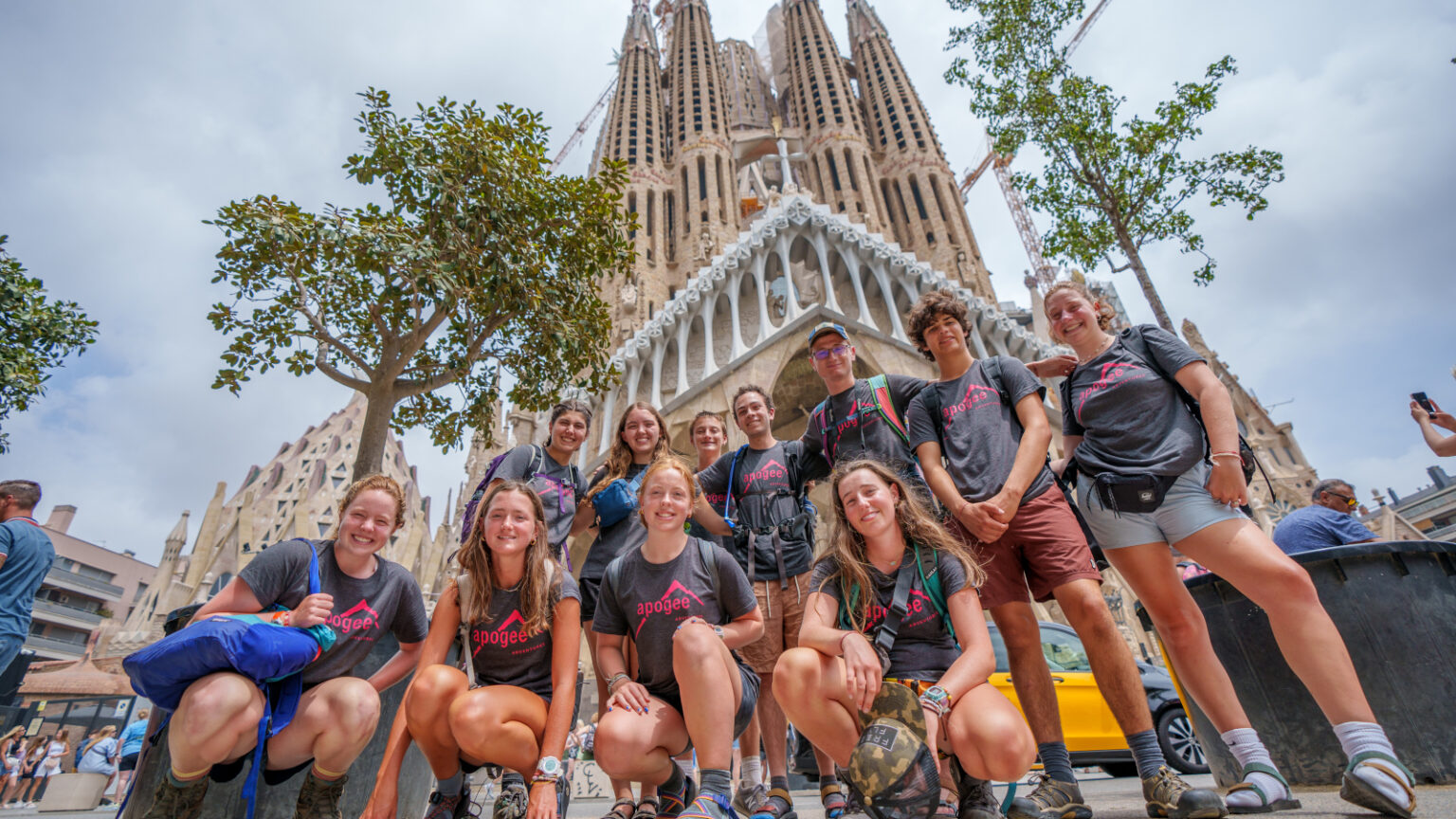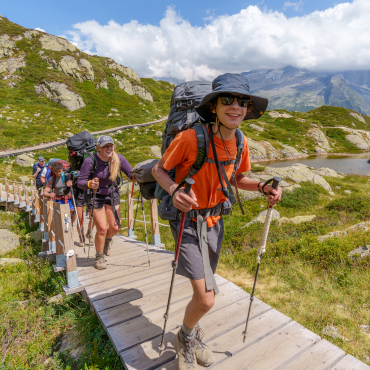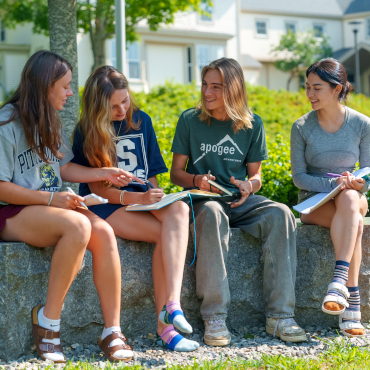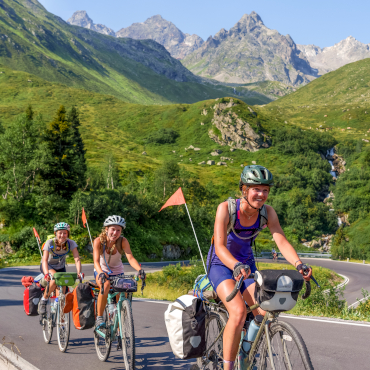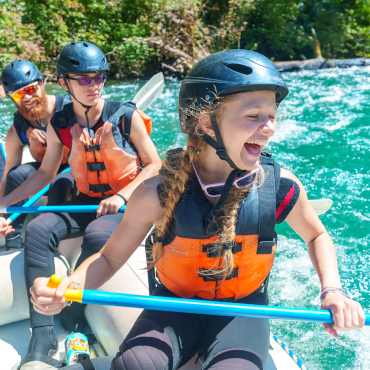Highlights
- Backpack the Carros de Foc hiking circuit in the Spanish Pyrenees
- Hike to spectacular views in the heart of the Pyrenees
- Kayak the turquoise waters of the Mediterranean
- Walk the fabled streets of Barcelona
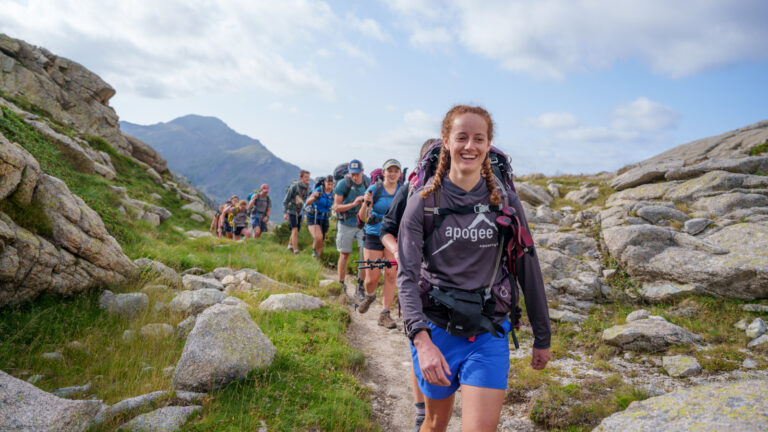
Trip Details
- Start: Barcelona, Spain
- End: Barcelona, Spain
- Age Range: 15 - 18
- Cost: $5,399
Dates
Jun 29 - Jul 11 (Waitlist)
Jul 15 - Jul 27 (Waitlist)
Jul 11 - Jul 23 (Available)
Jul 27 - Aug 8 (Available)
Trip Itinerary
The recipe for an incredible international adventure? Generously mix two cultures, three unique towns, palm trees, snowy peaks, and one world-class city. The result? Our Pyrenees Mountains & Coast trip. This adventure packs a huge amount of excitement and culture into thirteen days in Spain. You will experience Spanish and Catalan cultures – each proud, unique, and fascinating. As your adventure unfolds, you will hike through emerald forests and beneath towering peaks from your camp nestled in a deep mountain valley; you will climb past sparkling lakes and under snowy passes in Spain’s Aigüestortes National Park; you will sea kayak the turquoise waters of the Mediterranean; and you will cap it all off by exploring the fabled, lively streets of Barcelona.
The Mediterranean Coast: Kayaking in Sitges
After arriving into Barcelona’s international airport, we’ll transfer just down the coast to the Mediterranean town of Sitges. With the mountains of the Parc Natural del Garraf rising behind the town and world-class beaches dotting the coastline, Sitges makes for an ideal place to shake off that jetlag and head out on a sea kayaking adventure! We’ll spend a day out on the water with local guides, exploring crystal clear water and quiet coves before we set off for the heart of the Pyrenees.
Hiking From the Village of Port de la Selva
From the coast, we’ll transit to the Catalonia coastal village of Port de la Selva, which lies tucked into the northeast corner of Spain. There, we’ll get our hiking legs warmed up by hitting the mountain trails that surround the village. We’ll hike through forests to spectacular vista points, all while experiencing the charm of a small Spanish village nestled against the water and under the mountains. After a these first days of hiking, we’ll be primed and ready to take on our circuit of the high Pyrenees.
The High Pyrenees: Backpacking the Carros de Foc & Celebrating in Barcelona
Leaving Port de la Selva, we’ll transfer to the high Spanish Pyrenees and the small town of Espot, where we will set out on the famous “Carros de Foc” hiking circuit through Aigüestortes i Estany de Sant Maurici National Park. We’ll trek along the length of crystal clear mountain streams, past thundering waterfalls and sparkling alpine lakes, and through flower-filled valleys until we return, days later, to where we began. Around every corner the scenery is astonishing, delivering colorful vistas underneath the bright Catalan sun. We’ll get to know each other over hearty mountain meals and spend our nights in the simple mountain refuges that dot the national park. After our capstone five-day trek, we’ll head back to Barcelona to spend a day exploring and celebrating our accomplishments in the heart of this vibrant city – a perfect way to close out this Pyrenees Mountains & Coast adventure!
Reviews
Frequently Asked Questions
Please see our General FAQ page for many more frequently asked questions and answers!
How physically challenging is PMC?
Given a rating of Challenge Level 6 (out of a maximum of 10), we consider Pyrenees Mountains & Coast to be an advanced hiking trip. We do believe that any moderately fit, motivated student who trains ahead of time can successfully rise to the challenge of this trip. Compared to similar hiking trips, we believe PMC is a step above our Alaska Mountains & Coast trip (due to the more rigorous elevation gain and hiking mileage) and less challenging than our Northwest Explorer or Alps Explorer trips (mostly due to the fact that our Pyrenees groups don’t have to carry as much weight while hiking as our Alps or Northwest Explorer trips do). The group will hike around 10 miles on their most challenging day, while their daily mileage typically spans 5-8 miles. Please note that all of Apogee’s Challenge Levels are not scientific and are subjectively calculated by the Apogee staff.
How much training should my child do ahead of time?
As PMC is one of our most challenging hiking trips, we have a training and preparation protocol which we share with enrolled families well ahead of the trip. Please contact the Apogee office for specifics regarding pre-trip training.
Aside from the trip cost, what are the additional expenses for this trip?
Apogee’s tuition costs are meant to be all-inclusive and include all meals, accommodation, and activity fees. The most significant additional expenses on our Pyrenees Mountains and Coast trip will include travel to and from Barcelona, Spain, hiking boots, sleeping bag and pad, and personal gear. We suggest that you review the packing list (downloadable on this webpage) to determine what personal gear you already own and what you might need to acquire for this program. Please also check out our Gear Recommendations blog post for links to our personal recommendations.
How will I communicate with my child while they are on this trip?
We are a technology-free program, meaning that your child won’t have access to their phone or other electronics over the course of their trip. That said, students on international trips will call home at some point on arrival day, depending on schedules and arrival times. Since physical mail to Spain is frustratingly slow, we have an email stop as a part of the program instead of a physical mail stop. Parents, relatives, and friends are welcome to use this to send an email to a student that they know (the trip leader will share the emails with the student). If you have an urgent message to get to your child, please call our office and we’ll work to get you connected with your child.
What is the maximum number of students I can expect on my child’s Apogee trip?
There are never more than twelve students on an individual session of this trip. Additionally, we limit enrollment by gender to two-thirds/one-third. Groups are always led by two qualified leaders.
This trip starts outside of the United States. What do I need to know before traveling internationally?
In addition to needing a valid passport, we encourage you to coordinate travel with other attendees. To that end, we’re happy to put you in touch with other enrolled families from your region. Please note that Apogee staff members do not travel with students; our trip leaders will already be in Barcelona on arrival day and will stay in Barcelona after the trip ends. Apogee staff and trip leaders will have a detailed flight itinerary for each student and will be at the airport to greet them on arrival; our staff will also accompany students to the airport to assist with departures. We will provide enrolled families with a Travel Information document covering details specific to traveling to and from Barcelona, including airport information and arrival and departure time windows. We know that international travel can be daunting – rest assured that regardless of flight cancellations or delays, we will always have someone on hand to assist with our students’ arrivals and departures.
What luggage should my child check on the plane? What should be carried on?
This question is addressed in detail in our Travel Information document for enrolled students. Generally speaking, however, your child will be checking a backpacking pack containing the majority of their gear, while carrying-on their sleeping bag, medications, and a few other travel essentials. Hiking boots should be worn on the plane in the event of a delayed or lost bag.
Should I send my child to Barcelona with an international phone plan?
We encourage families to send their child with a phone for pre- and post-trip communication. However, because Apogee does not permit the use of cell phones by students while on trip, we do not recommend signing up for a European phone plan. If you’d like your child to be able to use their phone in Spain on departure day, we recommend you be in touch with your phone provider about any international calling programs they have. We recommend “Travelpass” (Verizon) or “International Day Pass” (AT&T), which charge you a $10 fee per day of use in other countries. To make their weekly call home while on trip, your child will use their leader’s phone to call you over WiFi. We’ll likely recommend parents download a free app, such as Viber or WhatsApp, to facilitate calls home. Look for this information in the spring.
Is this trip van-based?
No, this trip is not van-based. The group will utilize a private shuttle company and Spain’s terrific train system for their short-distance travel. Otherwise, they’ll be walking everywhere they go! This means that every pound matters – sticking to the packing list is essential. Their backpack should not be full to the brim upon departure, as they’ll need some room in the pack to carry group gear on occasion.
Where will my child be sleeping at night?
Our PMC group will be camping for seven of the twelve nights over the course of the trip, and each of those nights will be spent in established, front country campsites. They’ll spend the other five nights of the trip indoors (four nights in mountain hostels called refugis and one night in a Barcelona hostel). Leaders will separate students by gender into tent groups, and will rotate those groups several times over the course of our trip. Students will share a tent with one or two other students. Our groups will have access to running water and showers every night of the trip.
